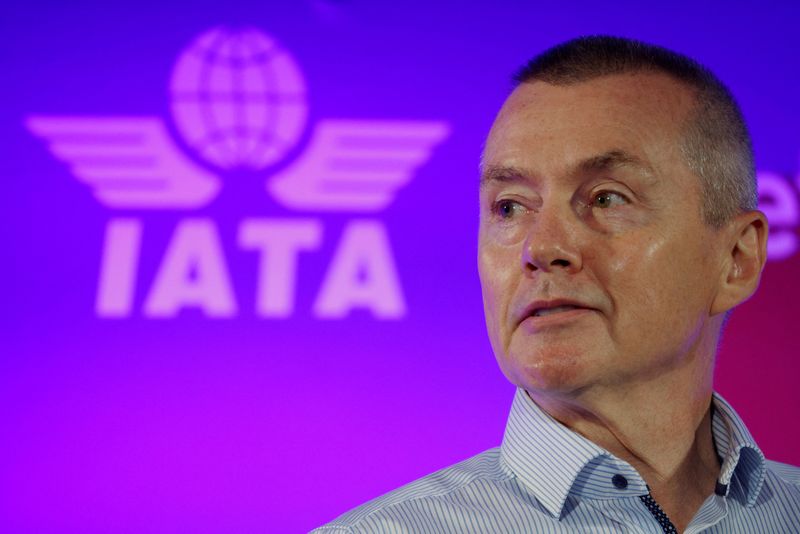By Tim Hepher and Jamie Freed
DOHA (Reuters) -Global airlines wrapped up an annual summit on Tuesday by pledging to overcome operational problems that have marred the industry's recovery from the COVID-19 pandemic such as labour shortages in airports.
The International Air Transport Association (IATA) comprising almost 300 airlines sought to put into perspective the furore over recent airport and holiday chaos and tempered plans to boost capacity as the battered sector tries to solve staff shortages since air travel collapsed during the pandemic.
"Let's relax a little; yes, we have challenges, but it is not everywhere," IATA Director General Willie Walsh said, adding that the industry would be able to see its way through recent problems.
He was speaking to reporters as airlines concluded a three-day Doha meeting marked by a sharper than expected recovery of air travel that caught airports and many planners by surprise.
Walsh suggested that labour shortages can be managed and had not affected the entire industry.
"There are certain airlines and airports. It's not widespread across the world. It's not every airport. It's not every day of the week. It's not every week of the year," Walsh said.
"I think that some of the airlines have decided to adjust capacity going forward to reflect the fact that they may not be able to recruit people as fast."
Lufthansa CEO Carsten Spohr said the problem in Europe was exacerbated by restrictive immigration policies.
"This is in my view just the beginning of a structural problem we have in Europe when it comes to blue-collar labour due to the demographic developments," said Spohr.
"That’s something politics has to look at because again it is not an aviation problem, it is not restaurant or hospitality or hotel problem, this is the beginning of shifts of the labour market we better gear ourselves for."
The airline industry expects to narrow losses this year but has raised its forecasts owing to the brisk recovery while voicing concern about rising inflation and the conflict in Ukraine.
Airlines may have to adjust capacity plans to cope with staff shortages, but not all carriers and airports are facing the chaos recently seen in Europe, Walsh told a news conference.
Walsh predicted the industry will see its way through current capacity and staffing challenges.

However, he said airlines are not able to absorb the sharp increases in fuel costs, calling on companies to produce sustainable aviation fuels.
Walsh also pledged that the aviation industry would stick to a commitment to achieve net zero emissions by 2050 despite debate over the speed of development of alternative fuels.